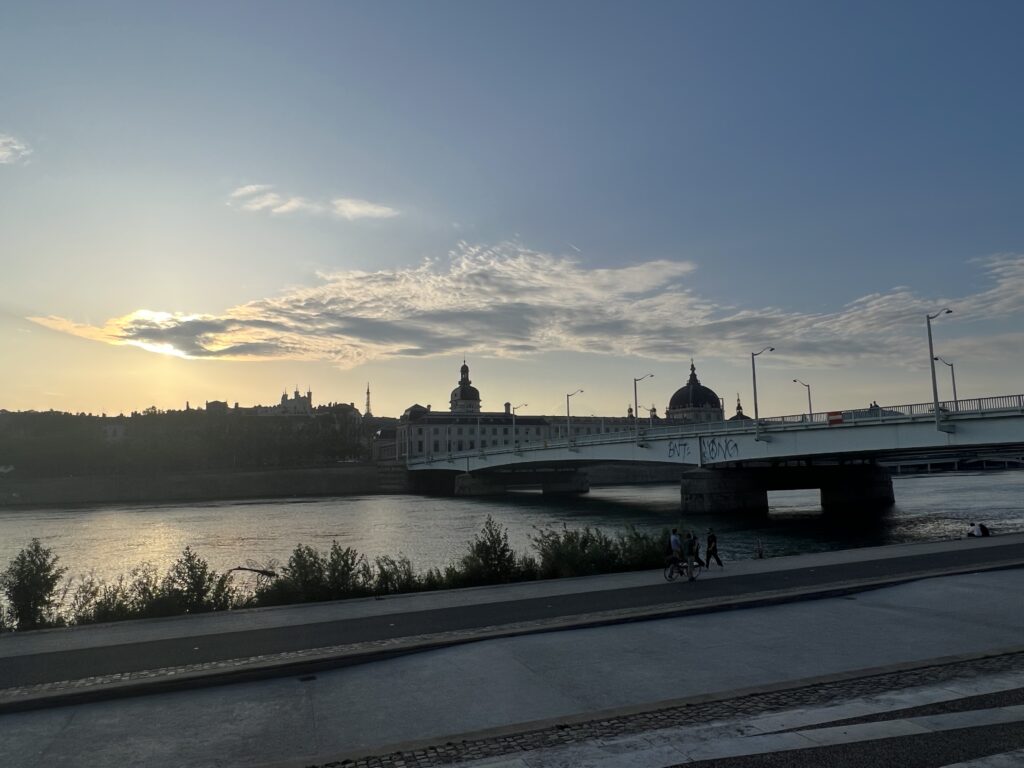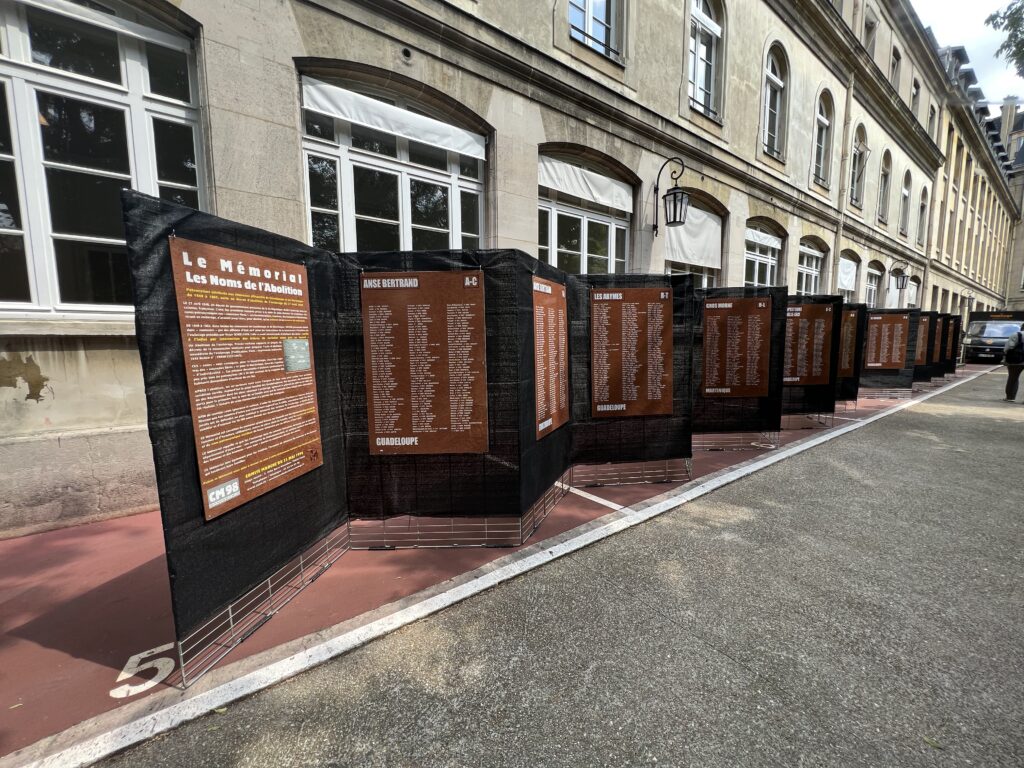Last week on May 23rd, I was able to attend an event in Paris just two days shy before leaving France. I had been living abroad teaching English the last eight months and my last wish was to attend this event hosted by CM98 (Comité Marche du 23 Mai 1998), a genealogical group I am a part of that focuses on honoring and defending the memory of the enslaved, learning the history of the slave trade, and fighting against all stigmatizations and discriminations. As you can tell by the date, this genealogical society is tied to May 23rd itself, and since then this day has become known as “la journée nationale d’hommage aux victimes de l’esclavage” (the national day of tribute to the victims of slavery).
So I want to talk a bit about what I did this day and the importance of honoring your ancestors.
Limyè Ba Yo
The phrase “Limyè Ba Yo” or “Honorons-les” in Creole (Honor them) has become associated with May 23rd and the celebration and honoring of the enslaved ancestors for the French-speaking world (in the Caribbean, Latin America, and certain parts of Africa). What started as a silent march to raise awareness has become a day full of genealogical and cultural events (ranging from music, food, and performances to genealogical chats). This year, the event was held at Ministère des Outre-Mer in Paris, and from my understanding it was the first time it was officially held here – giving the event some more prestige.
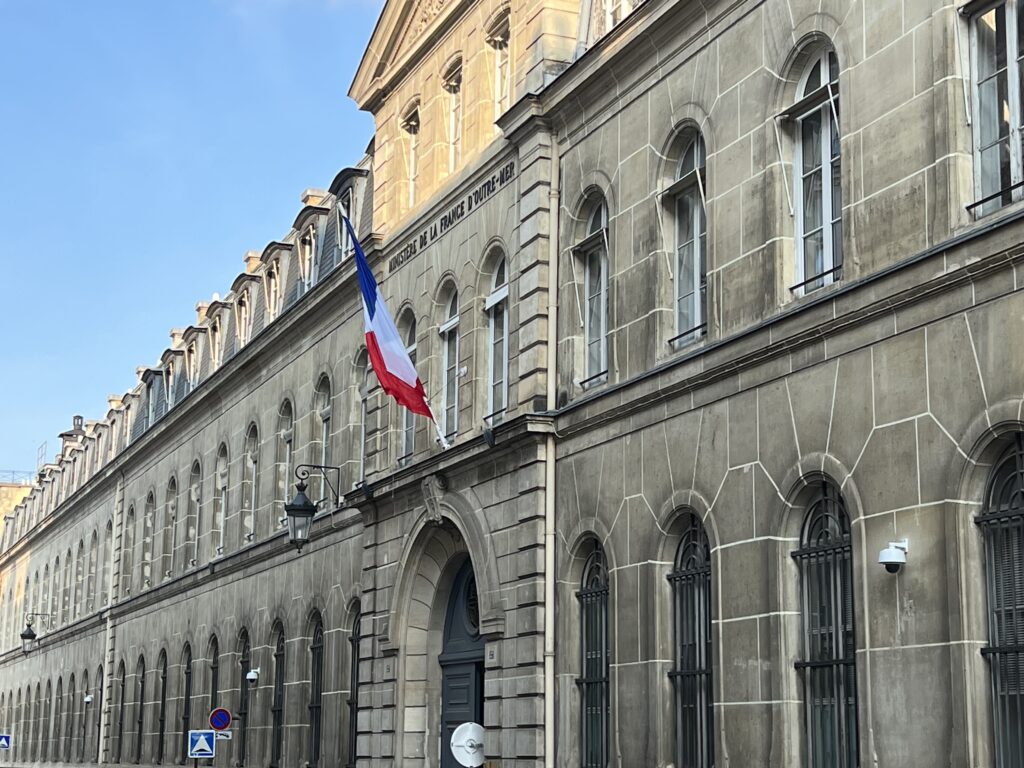
Before arriving, I had registered to attend the event and thankfully I did because given that it was being held in a government building, security was tight and someone who had not registered was turned away. I went through security, showed my ID, checked-in, and went into the garden of the Ministry for the event.
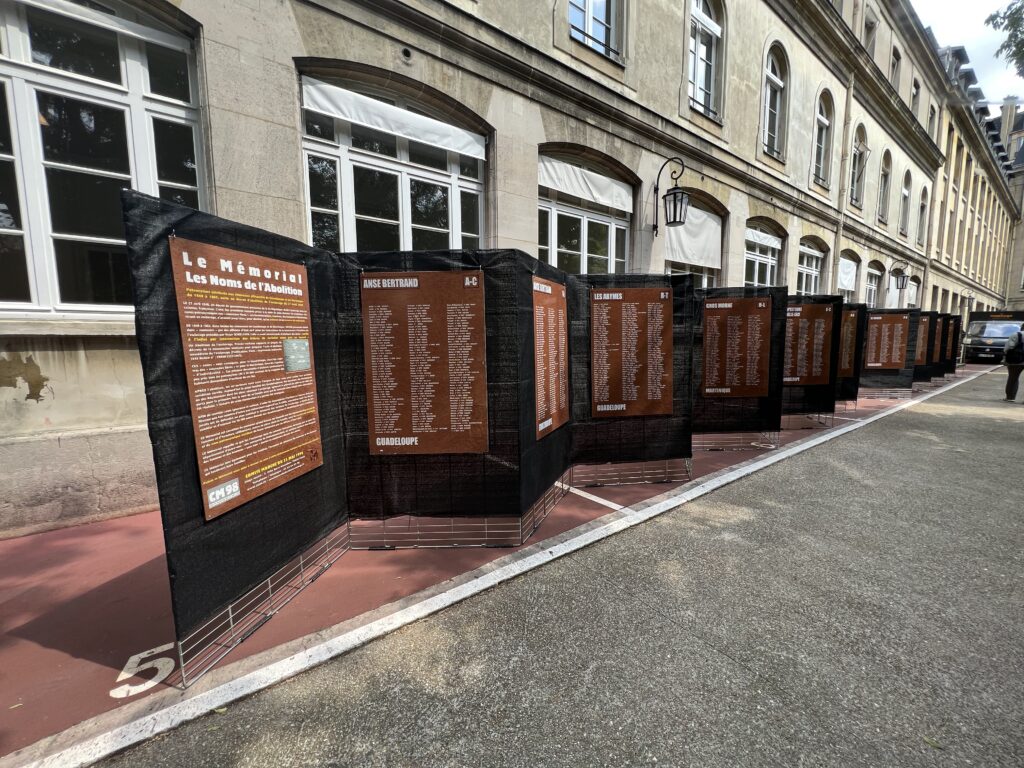
When you enter one of the first things to greet you is a list of the names of the newly emancipated enslaved people of the Caribbean in 1848. I excitedly walked over and tried to find the name of my ancestor, Eglantine (my 5th great-grandmother), who was freed in December 1848 along with her two daughters Pauline and Julienne Malvina (my 4th great-grandmother). On December 21, 1848 they were freed and were given the surname “Lautin”. I quickly realized though that the lists were not exhaustive and confirmed that they only had pulled some of the newly freed individuals to show some of the names and unfortunately my ancestors were not included in this list.
You can read a bit more about the “emancipation names” memorial down below.
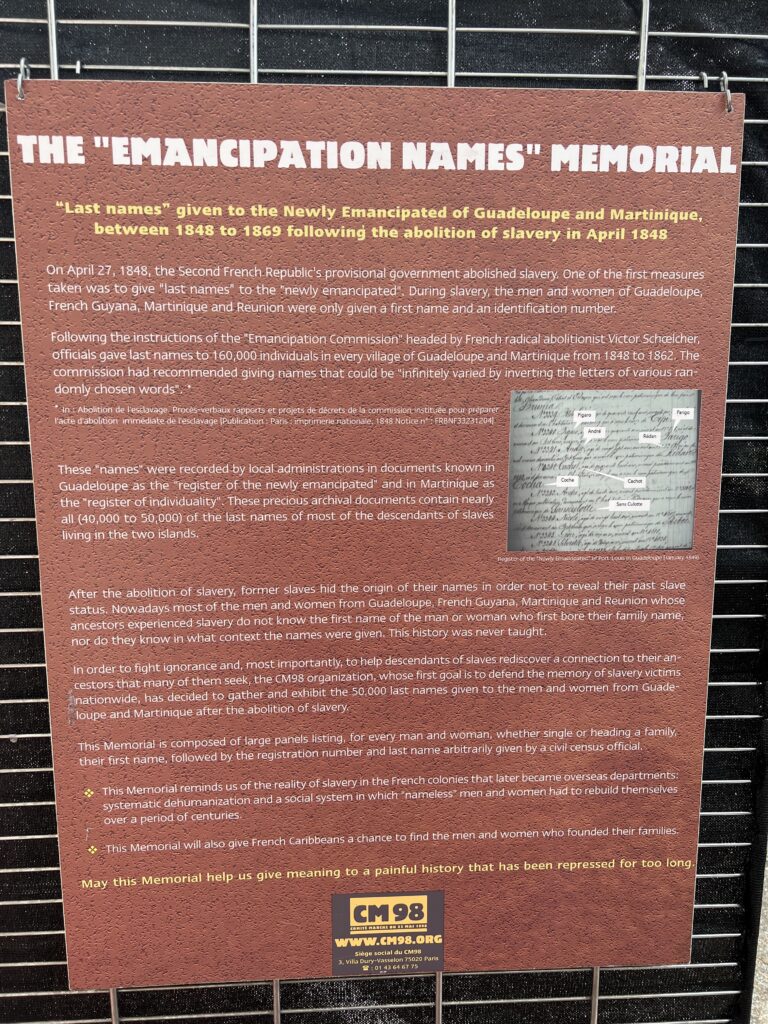
As you walked around the garden you could hear the music in the background, see and smell the food trucks of Creole Caribbean food, and see the various tents dedicated to history, culture, and genealogy. I was a bit nervous at first since this event was fully in French and I was concerned that I would choke up at the opportunity to speak in French about genealogy but luckily it all went well.
I was greeted and asked if I needed help. I mentioned searching for my ancestor’s surname and was asked “what is your background?”, which I understand since visually I look fairly European. Once I explained that my family was from Puerto Rico and that one of my ancestors from Martinique was liberated in 1848, she seemed relieved that I knew what I was talking about! She was working reception so she give me a quick introduction to some of the tents, handed me some brochures, and explained what I can find/do there. I continued on to the genealogy table and had a wonderful conversation with a lady whose family was from Guadeloupe and Martinique (like my ancestors!) about genealogy and the importance of learning about your ancestors.
She asked me what made me want to learn French (I dunno, but I had no idea I had French speaking ancestors when I started learning the language!), where my family was from (Terre-de-Bas, Les Saintes, Guadeloupe and Rivière Salée, Martinique!), and how I felt when I saw the document showing my ancestor’s value in francs when she was purchased (I cried!). She told me that now I needed to visit the islands and complimented me on my research and what I was doing. Truly, I was proud because I was able to have this conversation with her in French.
I spoke to two of the representatives from CM98 about my research and where I was stuck. They recommended I take a look at the notary lists for the islands (which I kind of have already, a post to come soon!) and I further explained how/where I was stuck. One of the representatives said that many of the genealogical members were in the same place I was, stuck with discovering more about our ancestors just before liberation. This is because many of the documents before 1848 relied on slave owners and the transactions between them in order to find out more about our ancestors since they were considered property previous to 1848. For example, it was via notarial research that I was able to learn that Eglantine and her daughter were sold for 1,000 francs in 1847.
Again, it was exciting to be about to speak to others who knew about the type of research I was doing and who shared ancestry with me one way or another. Though I did not grow up knowing I had a connection to Guadeloupe or Martinique and I do not claim to know what it is to be these identities, I know that if it was not for my French Caribbean ancestors, I would not be here today. Genealogists have a way of bring sometimes the distant past to a closer proximity to them given the research we do. At the same time, my own great-grandfather spoke French and it was his father who was half Puerto Rican and half Martinican/Guadeloupean – so in reality, my history is not too far from me.
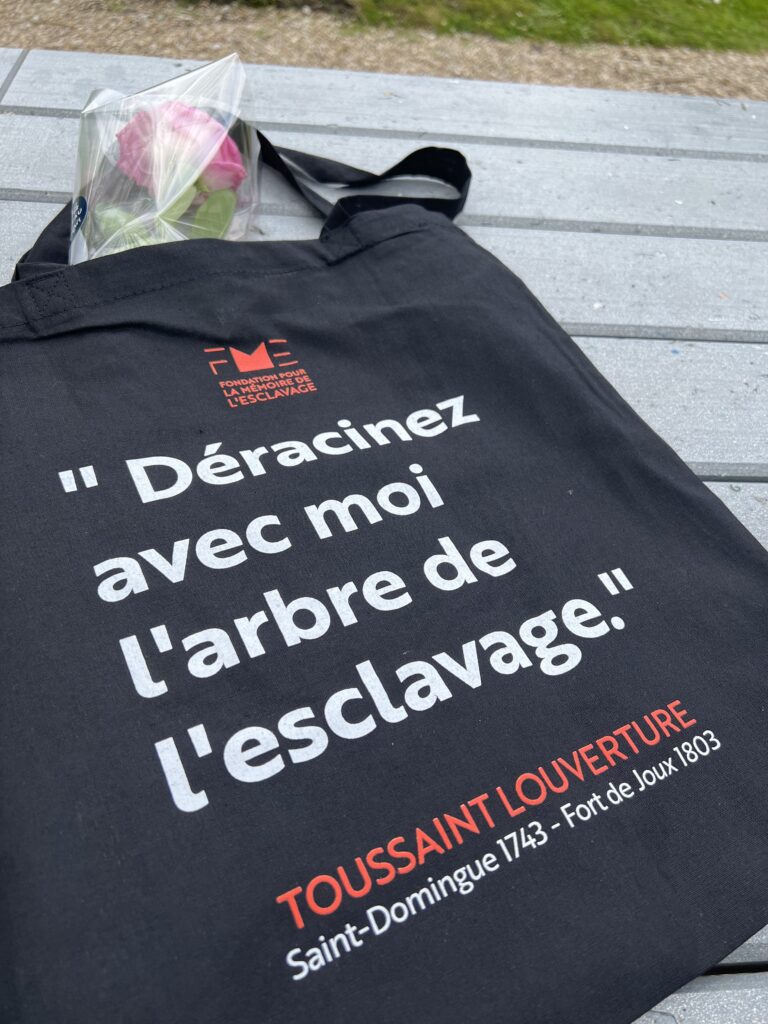
One of the main events was having the president of CM98 speak as well as the minister himself. I do not know much about French politics but I later learned that the minister is named Jean-François Carenco who spoke about the importance of commemorating such a day. He also spoke about the monument that had been previously promised but has yet come to fruition. The monument is expected to have a place in Jardin des Tuileries in Paris. The hope is that the monument’s creation and placement will occur soon (within the next two years possibly!).
The idea would be to engrave 200,000 names of the newly freed enslaved people from Guadeloupe (87,500), Martinique (74,000), La Réunion (63,000), and Guyane (13,500). Amongst the 74,000 “nouveaux libres” would be Pauline, Julienne Malvina, and Eglantine who received the surname Lautin. I hope that in this monument their names would appear!
As one of the members in attendance mentioned in an article about finding their surname:
“C’est important de retrouver mon nom. C’est me retrouver moi”.
(It is important to find my surname. It’s to find myself).
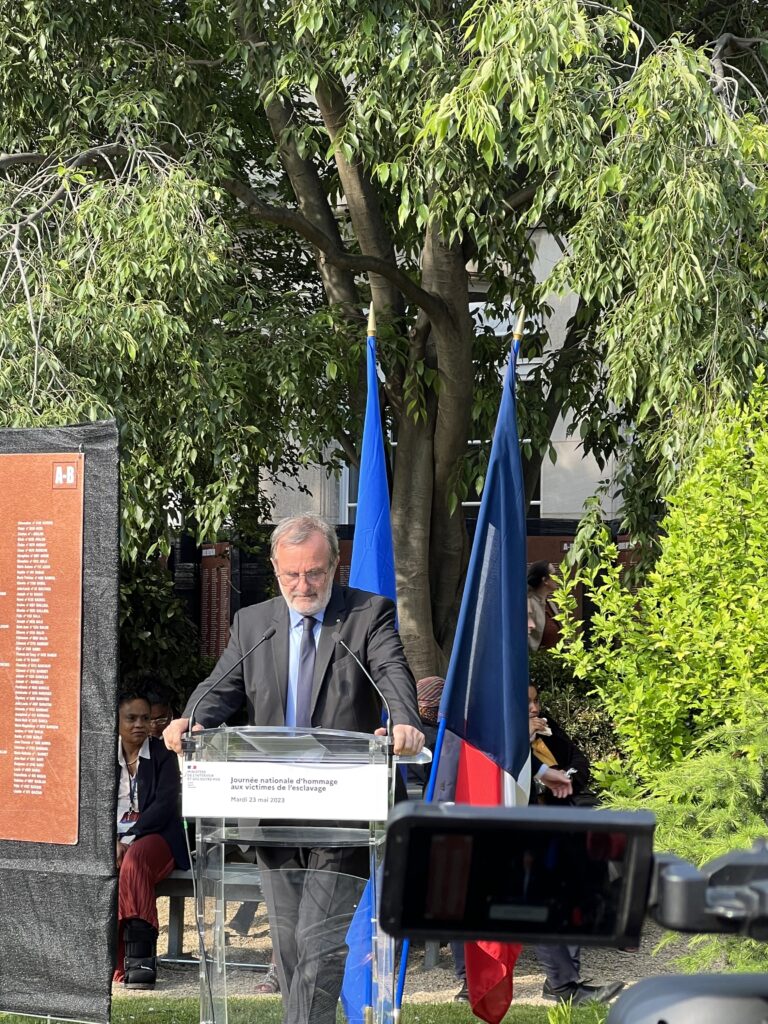
The last part I was able to take part in was placing flowers in order to honor our ancestors. Various bouquets of flowers were presented by the association and the ministry in front of a memory tree which was planted on May 23, 2018. Descendants were then invited to place their own flowers as well by two plaques dedicated to Fort de France and Pointe-à-Pitre, the capitals of Martinique and Guadeloupe, respectively, with some of the names of the newly liberated.
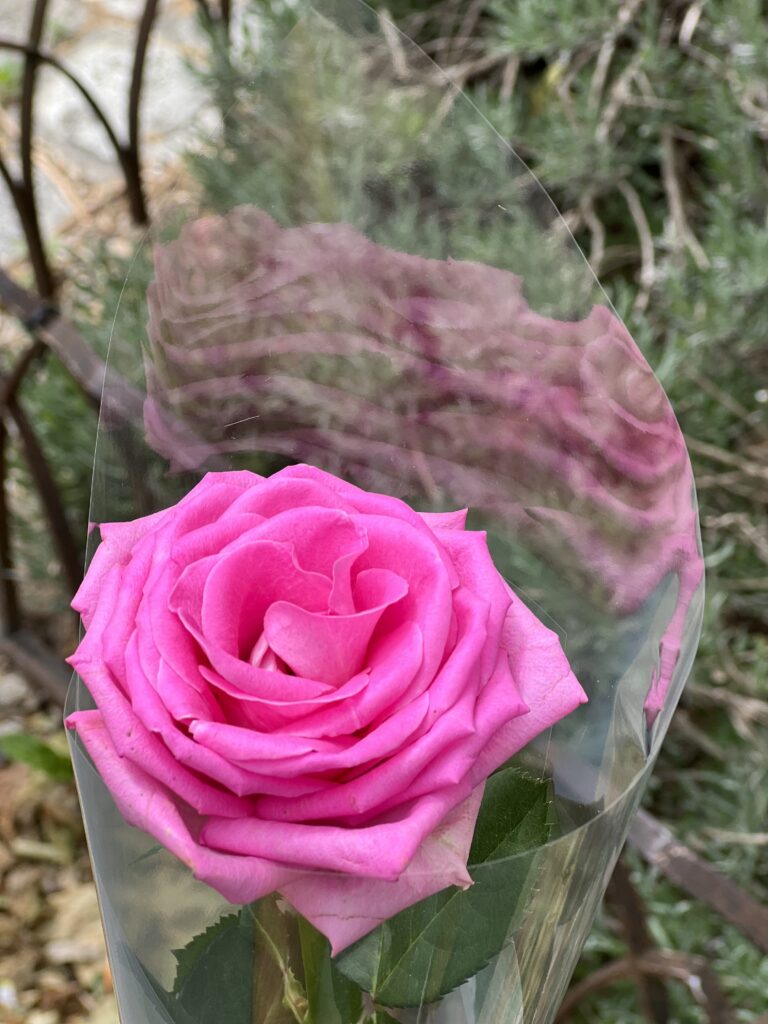
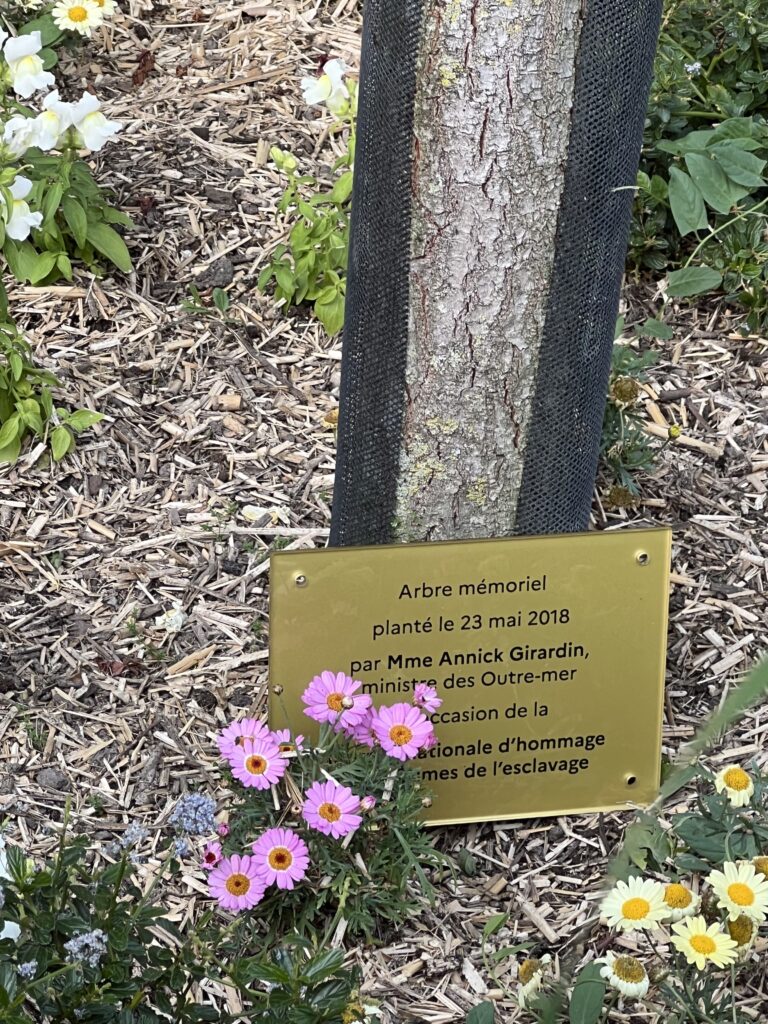
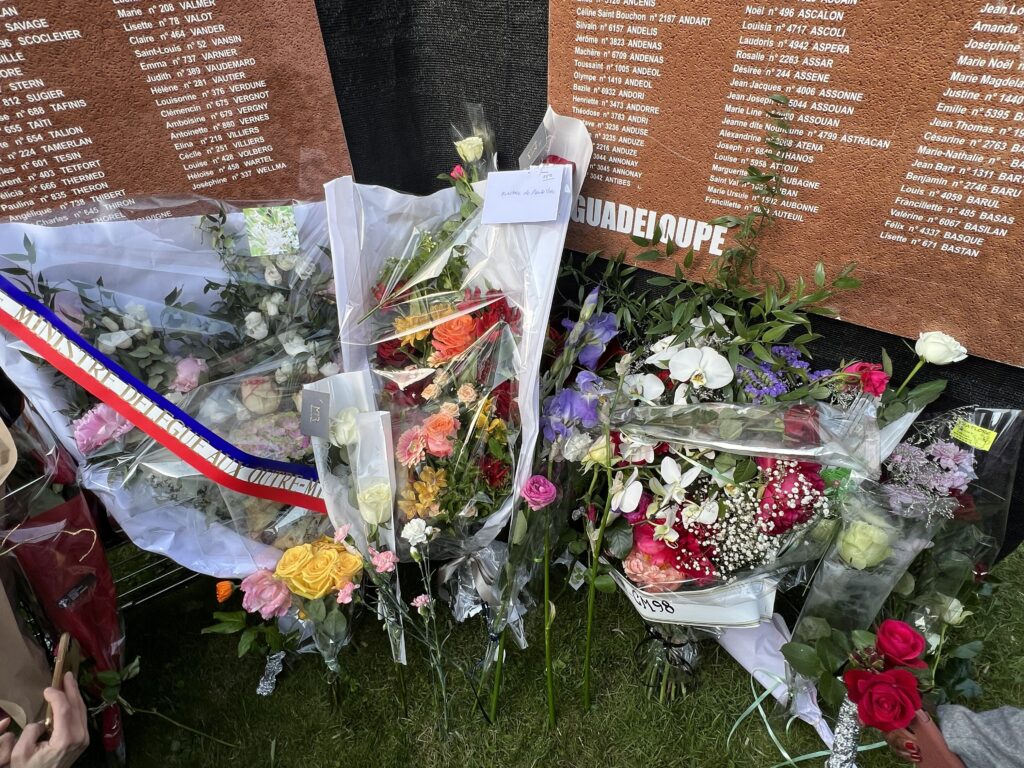
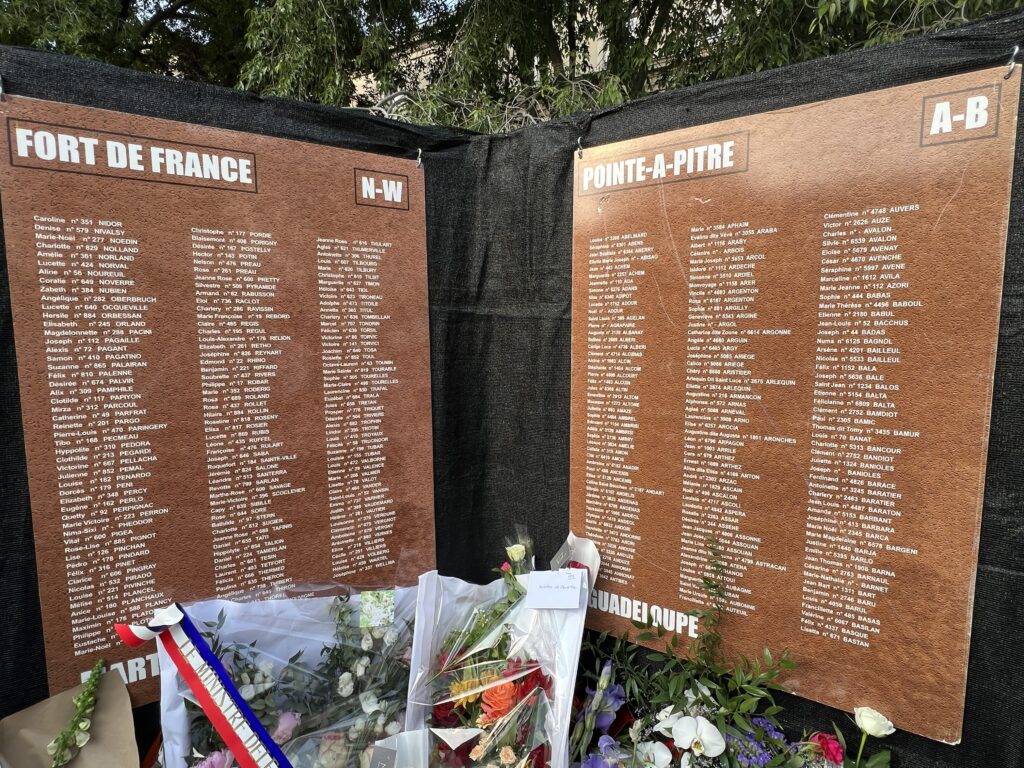
I placed my flower in front of the memorials and silently thanked my ancestors for their courage, wisdom, and the opportunity to be present in Paris that day to celebrate and honor them.
Unfortunately, I was not able to stay behind for the rest of the evening which included live music in the jardin since I had to return to Lyon. Nonetheless, I was happy that I was able to attend this event. It has been an event I have heard about the last three years and I am glad I was able to be there in person!
There is a phrase that’s floating around that I heard once and it stuck with me. Some attribute it to Banksy while others say it’s much older (some attributing it to a translation from the Egyptians). Nonetheless, I found the quote very powerful and pertinent to today’s post:
“They say you die twice. One time when you stop breathing and a second time, a bit later on, when somebody says your name for the last time”.
I will make sure to continue saying the names of Eglantine Lautin, Julienne Malvina Lautin, Gustave Jean Charles, Chaleau Jean Charles, and Marie Lucie – all of my ancestors who were enslaved by the French in the 18th-19th century. May their memories continue to shine brightly in our family’s history!
